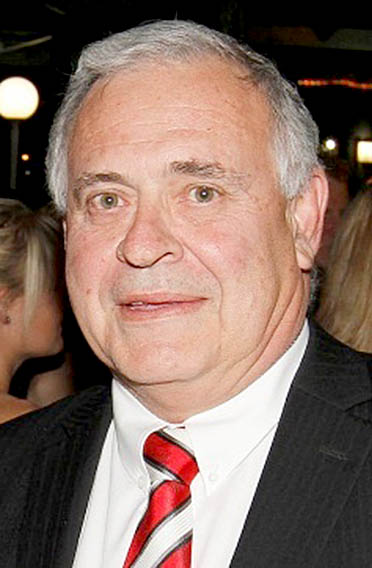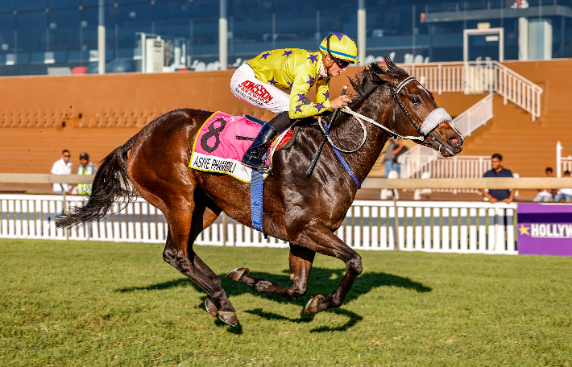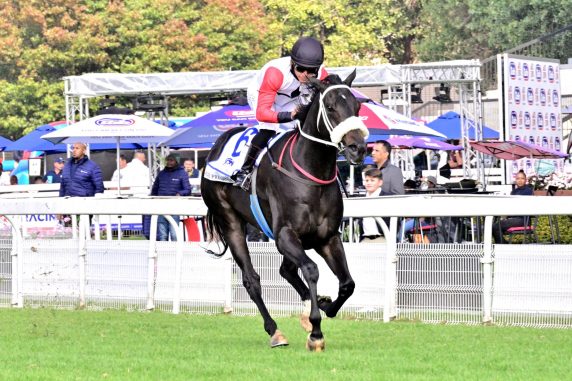
John Zucal
John Zucal, the newly appointed chief steward of the Emirates Racing Authority (ERA), has singled out the development of ‘policies and protocols for the betterment of racing’ as his foremost objective.
Having spent 37 years in the business, which involved extensive stints in Australia, Macau and Greece, Zucal also believes that competitive, clean and safe racing will help anchor the sport and build a platform for it to excel. Having embraced the challenge to safeguard the integrity of horse racing in the UAE the Australian will be hoping to foster a common vision and a firm and shared conviction with the ERA, for the betterment of the sport. Gulf News recently caught up with the veteran to talk about his new responsibilities.
GN: Can you briefly describe the role of a Chief Steward?
John Zucal: Stewards are appointed pursuant to the Rules to regulate, control, take cognizance of and adjudicate upon the conduct of all officials, owners, trainers, riders, grooms, persons attendant upon horses and of all persons frequenting the stands or other places used for the purposes of racing. Essentially, Stewards are responsible for the integrity of racing covering all aspects including licensing, drug testing of horses, surveillance of races and conduct of participants.
The Chief Steward heads the Stewards’ Panel and is responsible for the day-to-day running of the Panel and setting strategies. The Chief Steward chairs all race meetings and sets the standard required.
GN: What was it that appealed to you regarding the position of Chief Steward at the ERA?
Dubai racing is recognised as an international frontrunner in horse racing. The position of ERA Chief Steward is highly coveted and to head the Stewards’ Panel and experience racing in the UAE is a once-in-a-lifetime opportunity and a privilege. Also, I embrace the chance to experience different cultures and to meet a diversity of people.
GN: What strategies did you employ in your previous roles to ensure that the integrity of racing and safety of jockeys was maintained?
Briefly, I was very keen that Stewards must be proactive in their duties. It is essential that Stewards inquire into all matters pertaining to the running of the race and set a high standard in relation to race riding. Clean, competitive and safe racing is essential for success.
I developed a robust, extensive swabbing regime. All horses competing on a level playing field again ensures success. Intermingled with this is animal welfare which the racing industry and wider community expect and demand. I was very keen on communication with the industry. Getting out and conducting stable inspections and attending track work improves industry relationships.
GN: Given the fact that jockeys and trainers competing in Dubai come from different parts of the world, how will you tackle the inequities that you are likely to encounter?
Jockeys and trainers that come to Dubai have been very successful in their home jurisdictions. ERA has clear rules and instructions of racing and again the basics are similar across all areas. There may be some variation with rules and whip regulations but by clear communication to participants I do not envisage problems. This will lie with the Stewards.
GN: How do you plan to entrench the ERA’s Vision and values in the day-to-day operations of Stewarding?
The Stewards are part of a very efficient ERA racing team. It is incumbent on us to participate and be respectively constructive in our discussions and suggestions. We need to be consistent and proactive in our dealings with participants. Again, what we want is competitive and clean racing. We do not want injuries to horse and rider.
Developing policies and protocols for the betterment of racing is our goal. Existing policies will be reviewed and if we believe those policies can be improved that will happen.
GN: What are the issues you will be looking to identify and how will you introduce improvement if necessary?
Primarily, it gets back to the basic requirement — competitive, clean and safe racing. This is the foundation on building a platform for excellent racing. Sam Shinsky has been appointed as an ERA Steward and we have Sam Cockrane from Victoria as our seasonal Steward. In addition we have a competent, experienced panel of race-day Stewards, so we are very well placed to put our strategies into effect.
Of course a robust swabbing regime is a necessity. That already exists in Dubai — I will be looking to work within the ERA to develop strategies where applicable. I am also keen to work with Race Clubs and play a part in the improvement of our race tracks in Dubai and raceday operations at our tracks.
GN: Is doping one of the significant issues that has to be dealt with in the sport?
The short answer to that is yes. Every integrity department in world racing strives to improve testing and analytical procedures. We have an experienced and highly competent Head Veterinary Officer in Dr David Sykes and a rigorous testing regime in place at present. We have a world class laboratory to conduct testing. Together with the ERA, the laboratory continues to develop testing strategies. We have started that process. We have and will continue to communicate with stake holders so they are fully aware of the rules and regulations. Putting these steps in place will ensure the integrity of ERA racing.
GN: What is your take on the whip rules observed around the world and where do you think lies the middle path?
I have been a Steward for many years and I have seen the rules pertaining to whip use change considerably over that time. In my opinion there can be no comparison to the past and present — it has improved significantly. The phrase for whip use is “persuasion not punishment” and horses will give of their best when persuaded. It is a clear animal welfare issue. ERA whip rules are clear and concise and set the example in comparison to other major racing jurisdictions. You cannot hit horses forward of the shoulder, when out of contention or not responding. The action of using the whip is controlled. We have a policy which defines ‘excessive’ which is anything above 12 strikes in a race. Stewards are vigilant in the surveillance of whip use so you can clearly see that from a racing perspective it is highly regulated. I am happy where we are at with the whip rules.
GN: From your perspective do you think that the role of Stewarding has evolved over the years?
The basics of Stewarding are the same but the actual operations of Stewarding has changed over the years. We are far more technically advanced now than ever before. Race day vision has improved immeasurably and I believe Stewards today are held more accountable which are all advances.
Legalistically, Stewards are bound by the principles of natural justice and procedural fairness in inquiries. The inquiry process has developed over the years as a natural advance. Stewards now have a structured education and trainee curriculum and are trained on a wide range of disciplines to further enhance their skill set.








